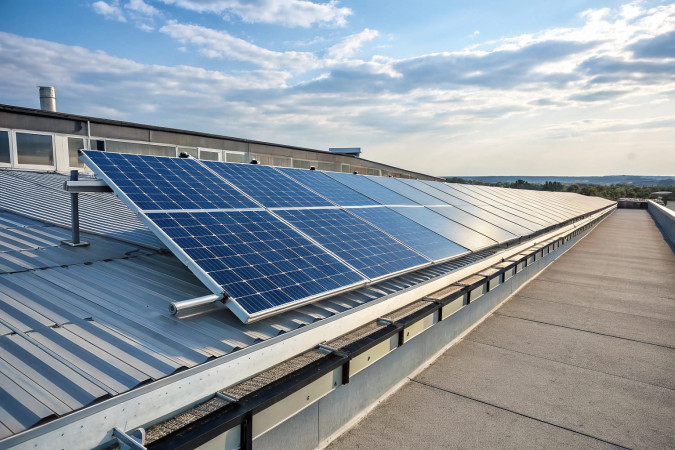
Follow India Renewable Energy News on WhatsApp for exclusive updates on clean energy news and insights
APTEL Upholds Tariff Compensation for Adyah Solar Project Due to GST Impact
Feb 12, 2025
The Appellate Tribunal for Electricity (APTEL) has dismissed an appeal by Hubli Electricity Supply Company (HESCOM) against the Karnataka Electricity Regulatory Commission’s (KERC) 2021 order, which granted a tariff increase to Adyah Solar Energy. The adjustment compensates for higher costs resulting from changes in tax laws, specifically the imposition of the Safeguard Duty (SGD) and Integrated Goods and Services Tax (IGST) on imported solar modules.
APTEL upheld KERC’s decision, allowing an additional incremental tariff of Rs0.39/kWh over the existing tariff of Rs2.91/kWh for a period of 22 years. This adjustment ensures the recovery of Rs21.75 Cr for the solar project.
Background
The Karnataka Renewable Energy Development Limited (KREDL) had issued a request for proposals to develop 1,200 MW of solar projects within the 2,000 MW Pavagada Solar Park. Adyah Solar Energy secured one of these projects and entered into a Power Purchase Agreement (PPA) with HESCOM on April 28, 2018, to supply solar power at a tariff of Rs2.91/kWh.
Following the Ministry of Finance's imposition of SGD and IGST in July 2018, aimed at protecting domestic manufacturers, Adyah Solar faced increased costs due to its reliance on imported solar modules. The company petitioned KERC, seeking recognition of these taxes as a "Change in Law" event under the PPA terms. Adyah Solar claimed additional costs amounting to Rs31.75 Cr and requested a corresponding tariff adjustment.
In June 2021, KERC ruled in favor of Adyah Solar, acknowledging the SGD and IGST as "Change in Law" events. The Commission awarded Rs21.75 Cr as reimbursement and permitted a tariff hike of Rs0.39/kWh over 25 years.
Tribunal’s Analysis
HESCOM challenged KERC's ruling, arguing that tariff determination parameters under Section 62 of the Electricity Act should not apply since the tariff was established through competitive bidding under Section 63. However, APTEL dismissed the appeal, affirming that KERC acted within its jurisdiction under Section 86(1)(b) of the Electricity Act, which authorizes state commissions to regulate electricity procurement prices, including matters related to changes in the law.
The Tribunal found that KERC's approach was legally sound, as neither the competitive bidding guidelines nor the PPA outlined mechanisms to address changes in the law. It also rejected HESCOM's argument that the total compensation, exceeding Rs67.3 Cr over 22 years, was excessive compared to the initial claim. APTEL reasoned that distributing the compensation over an extended period accounted for the time value of money, ensuring fair recovery for Adyah Solar without imposing an undue burden on consumers.